Wael Salem
By 2024, Egypt will be a major hub for global transport and logistics, Minister of Transport Kamel el-Wazir said recently.
The 10-year transport network modernization plan, which was begun in 2014, is expected to cost LE1.7 trillion.
The plan covers six areas: roads and bridges (LE474 billion), railways (LE225 billion), tunnels (LE837 billion), shipping (LE115 billion), dry ports and logistics (LE15 billion) and river transport (LE3 billion).
Khaled Abdel-Fattah, who is head of the Sociology Department at Helwan University, told the Egyptian Gazette that the poor old transport system negatively affected all aspects of life.
Ayman Mosallam, professor of structural engineering of the Faculty of Engineering, Benha University, said: “Roads for heavy goods vehicles are reinforced with concrete castings. Road construction in mountainous areas must be applauded.”
“Transport is the artery on which all economic and social development programmes in the country are built,” Mosallam told this paper.
Mohamed Idrees of the Urban Planning Department at the Faculty of Engineering, Cairo University, told Majalla that the road network was “one of the most important elements of development” for any country.
In recent years, projects costing LE1.3 trillion have already been implemented, the minister of transport said, noting that the monorail, the high-speed electric train, port projects, and 30,000 kilometres of new and developed roads will be completed by the end of 2024.
There are plans for a road link between Egypt, Libya, Chad and Niger. Egypt intends to work with nine other countries on the construction of a highway linking the Delta with Cape Town, South Africa by 2024. This pan-African highway will start from Alexandria and go through Cairo to the Arqin Border Crossing between Egypt and Sudan.
The 10,288-kilometre road will go through Sudan, South Sudan, Ethiopia, Kenya, Tanzania, Zambia, Zimbabwe, Botswana and South Africa, ending at Cape Town.
Egypt is also building a 1,102-kilometre route at an estimated cost of LE22 billion, to connect with Chad through Libya.
A 585-kilometre coastal highway from Salloum in west Egypt to Benghazi in east Libya is under construction at a cost of LE3 billion.
“Road projects connecting with Egypt’s neighbours will achieve sustainable development, promote trade exchange with world countries and improve access for Egyptian exports to Arab and African markets,” the transport minister said.
As for the national rail network, signalling and communication systems on main routes are being updated with the latest electronics and central control systems to eliminate human error, cut accidents and raise safety standards. In general, 257 railway-related projects costing LE220 billion will have been carried out under the ten-year plan, while 177 schemes have been completed at a total cost of LE45 billion.
By 2024, more than 2,200 kilometres of track will have been electrified at a cost of LE757 billion, along with a high-speed electric network of total length 1,795 kilometres on which LE360 billion will have been spent.
The first line of 460 kilometres, which is due for completion in 2023, will cost LE100 billion and link Ain Sokhna on the Red Sea with New Alamein City on the Mediterranean coast via the New Administrative Capital (NAC) and Borg el-Arab.
The second line will link the Red Sea ports with Alexandria and Matrouh Gargoub. The third will connect Hurghada and Safaga on the Red Sea with Qena and Luxor. The last will link 6 October City with Luxor and Aswan.
After the two monorail routes, it will be possible to travel to the NAC from 6 October City via Mohandessin and Metro line 3 — a trip of 52 kilometres.
The first monorail starts from Nasr City with a length of 56.5 kilometres and 22 stops. The second will go from 6 October City for 42 kilometres through and 12 stops.
Meanwhile, one hundred Egyptian-made electric buses will soon be operating on the 110-kilometre Greater Cairo Ring Road.
According to a recent official statement, the eco-friendly fleet of the bus rapid transit (BRT) system will cost LE680 million as per the contract between the Arab Union Land Transport and Tourism Company (Super Jet), affiliated to the Transport Ministry and the Armoured Vehicles Production and Repair Factory (Factory 200 Military) under the National Authority for Military Production.
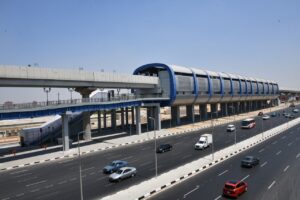
The contract is a milestone in electric bus manufacture in Egypt, the Ministry of Transport said in a recent press release, adding that stops for phase one of the BRT system will be completed before embarking on phase two of the Ring Road development, when 200 electrically-powered buses will be operating, serving 25 million people at 47 stops.
All these projects are being carried out in tandem with work on the underground network in Greater Cairo, which includes the completion of 42.2-kilometre line 3 costing LE97 billion, the first 19 kilometres of line 4 from 6 October City to Al-Ashgar district at a cost of LE70 billion, and a fifth line of 30 kilometres linking New Maadi to Al-Khosous at a cost of LE73.4 billion.
When it opened in 1988, the first line of the underground metro was dubbed the ‘fifth pyramid’ for its daring breakthrough in transport engineering.
Thirty years on, we have the beginnings of an extensive network of underground travel. In a few years, taking the tube to the international airport will be taken for granted.
At the eastern terminus of line 3 of the metro, Adly Mansour, is the transport interchange, nominated by the American magazine Engineering News-Record for an award of excellence.
From here you can board the fast electric train connection to the New Administrative Capital.
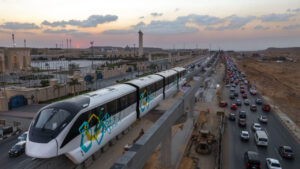





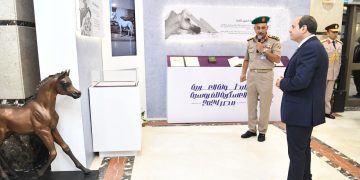
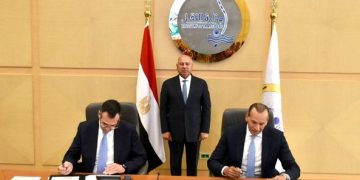
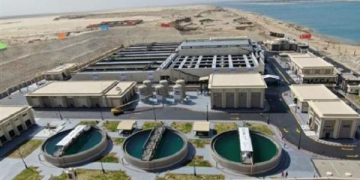
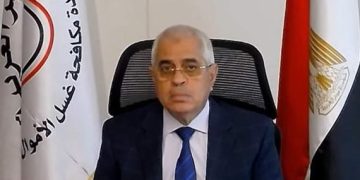



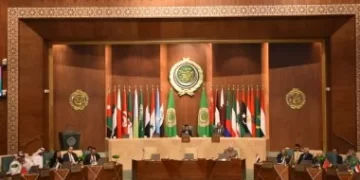


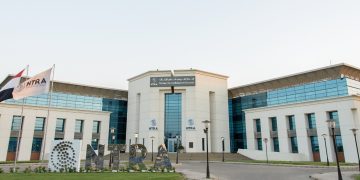
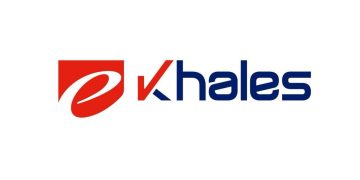





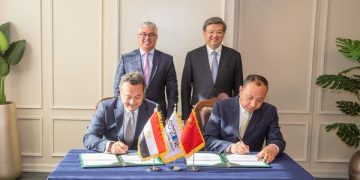
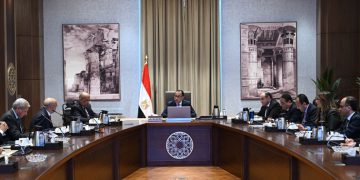



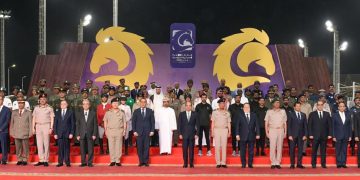





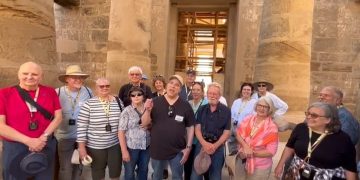



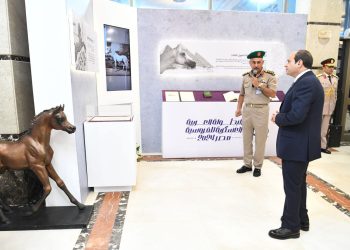

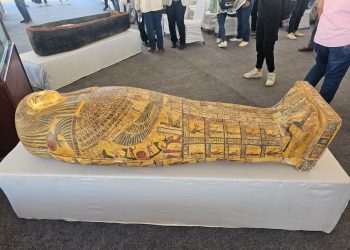









Discussion about this post